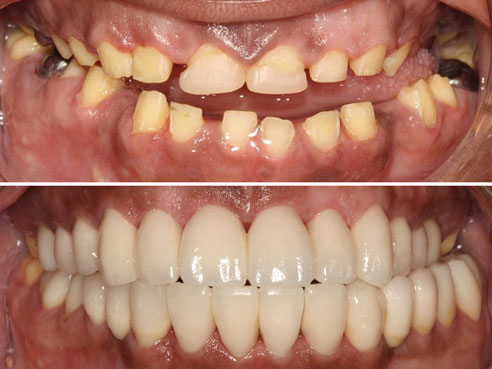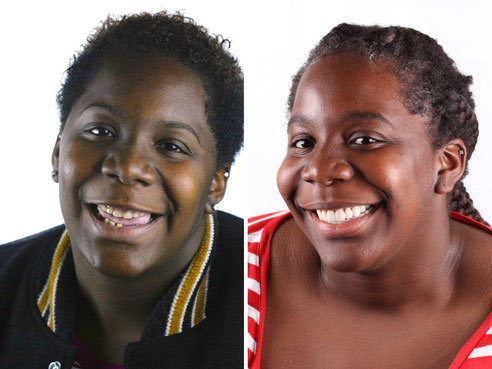Mykiria Mitchell has been through much adversity in 20 years of life, but nothing as difficult as not being able to smile. Now she has a reason to.
“I didn’t talk much because I didn’t want people to look at my mouth,” the Selma native said.
Diagnosed at 3 years old, Mykiria suffers from amelogenesis imperfecta, an abnormal enamel formation that affects one in 14,000 people in the United States, and has endured years of physical and emotional pain. AI causes teeth to be unusually small, discolored, pitted or grooved, as well as prone to rapid wear and breakage.
 “I was told she had this diagnosis when she was 3 years old, and the doctor in Selma said he had never seen anything like this before,” Mykiria’s mother, Michelle, said. “I didn’t know what to do but research doctors.”
“I was told she had this diagnosis when she was 3 years old, and the doctor in Selma said he had never seen anything like this before,” Mykiria’s mother, Michelle, said. “I didn’t know what to do but research doctors.”
That search led the Mitchells to Birmingham, and because Mykiria’s case was so rare, Children’s Rehab Services of Alabama made sure she would be taken care of by covering the cost of her treatment.
Michelle never lost faith in her daughter’s treatment, even when it meant helping her through extremely difficult times.
“It was hard, but I knew I was going to do whatever I could to take care of it,” Michelle said. “My daughter has a smile like a celebrity now.”
Jean O’Neal, associate dean for patients in the UAB School of Dentistry, served as Mykiria’s specialist in restorative treatment in the area of prosthodontics. O’Neal says Mykiria’s treatment spanned four different disciplines in the School of Dentistry, and there is a growing complexity in the cases that are being treated now.
“If you go back and look at Mykiria’s pictures from before treatment compared to now, when she smiles, she feels like she opens a room up,” O’Neal said. “A smile is often the first impression a person makes, and it is extremely important for young people. I think it has made her more outgoing and has given her more self-confidence.”

Watcharapong Aronnsang, a second-year prosthodontics resident, has treated Mykiria since July and is one of the last people she will see before regular visits every six months for progress reports. Aronnsang says Mykiria’s confidence has grown in the short time he has treated her.
“Seeing her a few months ago, she didn’t want to smile because her smile was abnormal,” Aronnsang said. “Now she is constantly smiling.”
O’Neal says Mykiria was a wonderful patient and underwent an enormous amount of treatment with clinic visits lasting anywhere from six to eight hours.
“We’ve spent a lot of time together, and I’m extremely pleased at how this has turned out,” O’Neal said.
Mykiria says that the most difficult part of the process was going through so much treatment, but that all the pain and struggle was worth it.
“The surgeries were the biggest challenge; but I knew it would be worth it, so I just did what I had to do,” she said.
After 13 years of dentistry visits and three years of treatment at UAB, Mykiria is proud to show off her new smile.
“People love my new smile and say it’s pretty,” she said. “They always ask me what I did to get this great smile. I like it.”